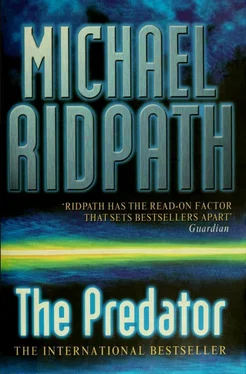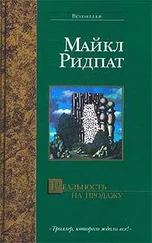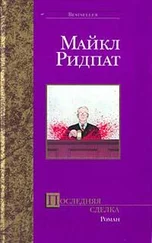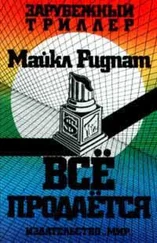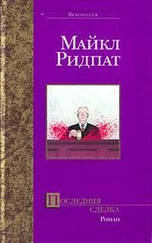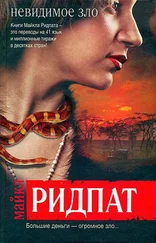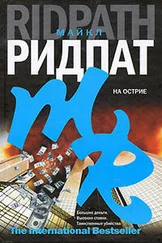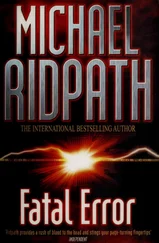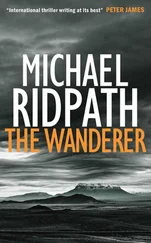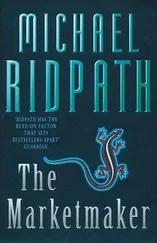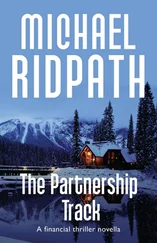The cold night air bit into Chris’s cheeks, and helped clear his brain of some of the jumbled financial concepts he had tried to cram into it over the previous three hours. It was early April, and it was supposed to be spring, but it felt to Chris as though there was a frost in the air. He hunched into his old leather jacket and headed along a cross street towards Fifth Avenue and Central Park. On either side of the street awnings reached out from the warm yellow glow of marble lobbies, where uniformed doormen stared blankly into the night.
Already the work was piling up, and he was finding it hard to make sense of it. He had tried to dust the cobwebs off the maths he had learned at school, but that wasn’t enough. Discounted cash flow, modified duration, internal rate of return, what did they all mean? And how could he possibly figure it all out by Wednesday?
He had done his best to keep quiet when Duncan had spoken anxiously about the training programme. He had his own fears, but he felt it was better to keep them to himself. Ian had perfected the art of confidence, and from what he had seen so far of the world of work, he was sure that that was one of the keys to success. If you didn’t know it, pretend you did, and hope no one found out.
But on the training programme, they would find out. Professor Waldern would find out the next morning when he asked Chris to explain modified duration. Or Calhoun would find out after the exams he had promised them. Duncan was right. It would be a hell of a shame if after all this struggle he was kicked out.
Chris had worked hard to get to New York. Bloody hard. It had started at eleven, when, with long hours of help and encouragement from his mother, he had scraped into the local grammar school. He had struggled through O- and A-levels, and had surprised himself with the grades he had achieved. He had applied for a place at Oxford to read history. He hadn’t wanted to do it, he thought it was a waste of time, but Tony Harris, his history teacher, had persuaded him. Much to his surprise, the Polish boy with the Yorkshire accent was offered a place at Lady Margaret Hall. His mother was overjoyed. She had said that she had always known he could do it, that he had his father’s brains. He knew that wasn’t quite true, but he felt that his father, wherever he was, was proud of him. And that made Chris feel very good.
Oxford, and more work. Then the big problem of finding a job afterwards. The recession was beginning to bite: employers were slashing their budgets for graduate trainees. Some regular employers didn’t even bother recruiting.
The competition was intense. Chris knew little about the companies who visited the university, but he applied to fifteen of them, including Bloomfield Weiss. Most rejected him, many without even offering him an interview. In his darker moments he blamed Szczypiorski for that, although he didn’t have the string of extra-curricular activities, the carefully constructed CV, of someone like Ian Darwent. But at Bloomfield Weiss he went all the way. Eventually they asked him to the firm’s smart offices in Broadgate, in the City, and he was grilled by five different bankers. They all liked him, he could tell. They liked the fact that he came from Halifax, they liked his Polish name, and they liked the determination that they knew breathed within him. When one morning he had gone to the porter’s lodge and found the letter with the words Bloomfield Weiss engraved on it, he had known what it would say. They wanted him. And he wanted them. Although it was the only job offer he received, it was the one he most desired.
Now he was one of sixty overachievers. Sixty men and women who had come top of their class in whatever had been thrown at them. Sixty winners. Winners like Ian Darwent, Eric Astle, Alex Lubron, or the dreadful Rudy Moss. And from those sixty winners, the training programme would squeeze fifteen losers. One of them might well be Duncan. Another might be Chris.
He reached the low wall on Fifth Avenue that bordered Central Park. He looked over it into the gloom and mystery of the park, ringed with the bright lights of Manhattan’s tall buildings. He should go back and get some sleep. There would be a lot to learn the next day. With a sigh he realized that there would be a lot to learn every day for the next five months. Well, he would keep his doubts quiet and his head down, and do his damnedest to make sure he wasn’t one of those fifteen losers.
The work was hard. They used the ‘case method’, which had been invented at Harvard Law School and adapted by business schools around the country. It involved reading a ‘case’, which was a detailed account of a realistic problem faced by a business, chosen to illustrate a particular financial concept. This was then discussed in class. The professor would pick on some poor individual to start off the discussion and then bombard him or her with follow-up questions. At its best, this could be a fascinating way of examining the issues. At its worst, it was a series of public humiliations for those involved.
The difficulty wasn’t just getting through the cases the night before. In order to understand them, the trainees had to plough through pages of heavy textbooks. They were expected to grasp at least one complicated concept each night.
Professor Waldern oversaw two of the courses in the early months of the programme: Capital Markets and Bond Math. These also happened to be the two most important subjects. A good understanding of bond mathematics was vital if you were going to trade or sell the things later on. Waldern was an excellent teacher: he could make the most mundane financial principles seem interesting and exciting. He would tease out glimpses of the solution of a case from different members of the class, and then, under his guidance, the concepts would seem to fall into place. Chris found his sessions intellectually stimulating and exhausting.
But Waldern was also a bully. Duncan was petrified from the outset that he would be called upon to start the class off, and indeed it happened, on the third day. Chris knew that Duncan had spent hours on the case the night before, about an airline deciding whether it should borrow through a fixed-rate bond issue, or a floating-rate loan. But Duncan just hadn’t understood it. He started off waffling, repeating the introduction to the case itself, and Waldern sensed blood. He spent twenty minutes proving to Duncan, himself and the rest of the class, that Duncan had not grasped the most basic principles of how a fixed-rate bond worked. Needless to say, Duncan was a wreck. Some of the trainees, such as Rudy Moss, tittered at the spectacle. Chris was furious. He tried to call out some of the answers, but Waldern was having none of it.
Professor Waldern wasn’t the only tough guy on the programme. Abby Hollis was a little Hitler. She was always to be seen scurrying around before and after class, nagging people left and right.
Lenka’s distrust of Abby turned to contempt after an incident in the second week of the programme. Lenka dressed dramatically. She eschewed the boxy suits of most of the American women; she wore stylish dresses, short skirts, tight blouses, cashmere sweaters and elegant silk scarves. She looked more like a Parisienne than a New Yorker. The men on the programme all loved this, of course, but many of the women were intimidated, and Chris overheard some of them speculating on how she could have amassed such a wardrobe on a trainee’s salary.
One morning she was chatting to Chris and Duncan in the hallway by the classroom when Abby approached. Lenka was wearing a trouser suit. It was an inoffensive light grey, and perhaps the most conservative outfit she had yet tried.
‘Lenka, a word,’ Abby said, taking her by the arm.
Читать дальше
